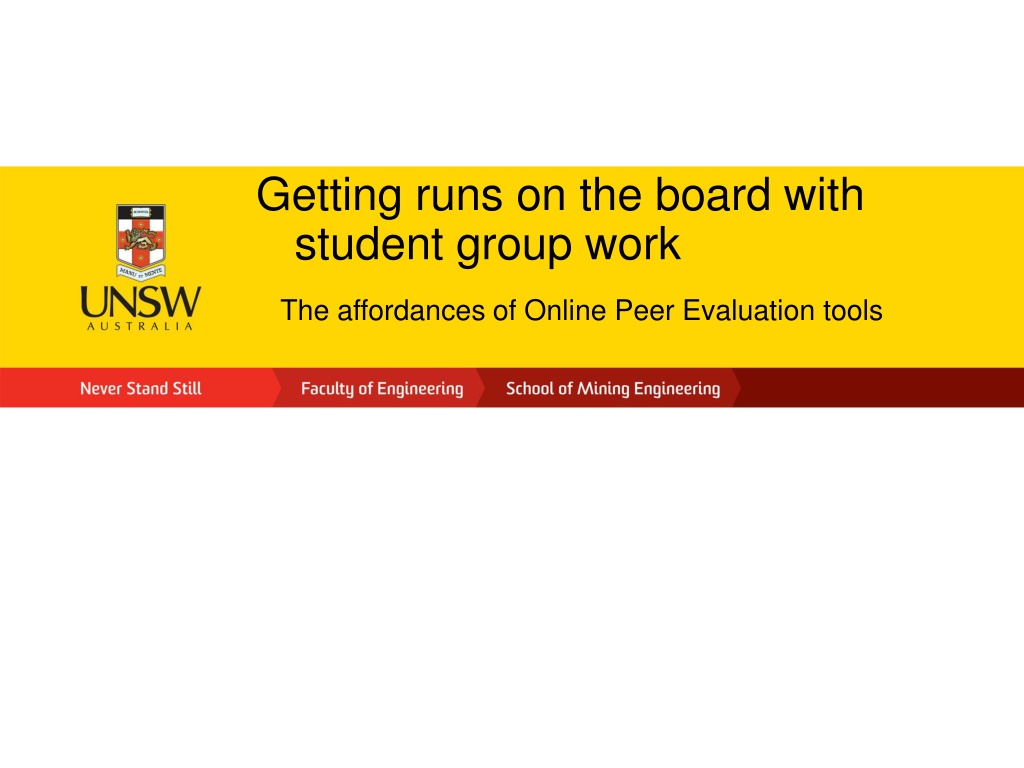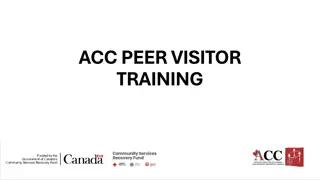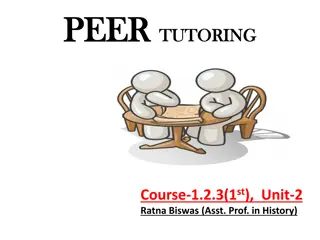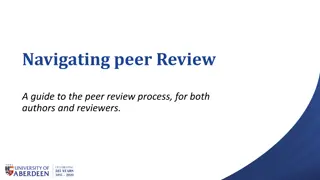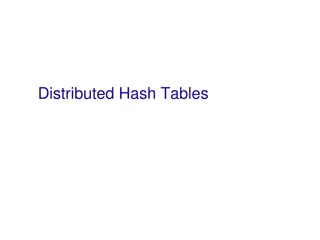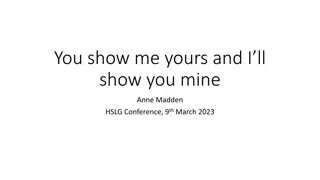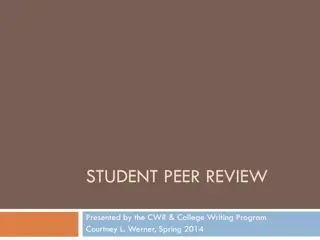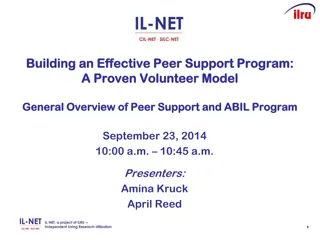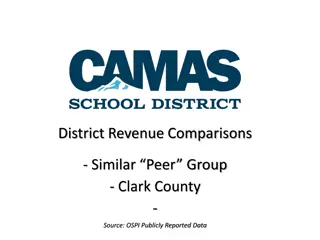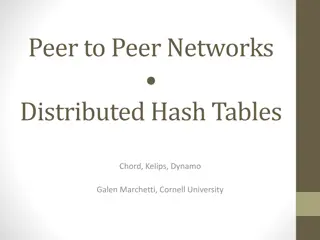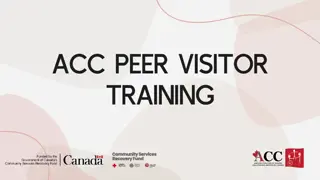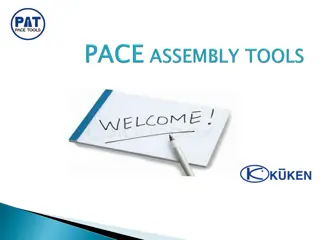Enhancing Student Group Work with Online Peer Evaluation Tools
Explore the benefits of utilizing Online Peer Evaluation tools to address challenges in group projects, such as grading fairness and team dynamics. Learn effective strategies for managing group work challenges and promoting collaborative learning. Discover how Online Peer Evaluation works and its role in enhancing student engagement and accountability.
Download Presentation

Please find below an Image/Link to download the presentation.
The content on the website is provided AS IS for your information and personal use only. It may not be sold, licensed, or shared on other websites without obtaining consent from the author. Download presentation by click this link. If you encounter any issues during the download, it is possible that the publisher has removed the file from their server.
E N D
Presentation Transcript
Getting runs on the board with student group work The affordances of Online Peer Evaluation tools
Introduction Tim Allen (no relation to the Tool Man) Educational Developer at the School of Mining UNSW Career Highlights: 5 years at the Learning and Teaching units at Macquarie and UNSW ESL/EFL teacher in Sydney and Asia for 10 years Education: MAppLing(TESOL), BLitt (English), BBSc (Psych)
Why Use Group Projects? Peer teaching students learn from each other Develop important interpersonal skills: cooperation, communication, leadership, negotiation, conflict resolution, etc. Student-centred learning: taking more responsibility Passive knowledge is activated by testing it against other s understandings and collaborative activities To prepare them for skills and qualities required in their future careers and lives
Group work: common challenges Students don't understand what they should do even after it has been explained Students complain about their groups or make groups with their friends only Some groups are very active and cooperative while some are very passive and quiet Difficult for the instructor to know what is really happening within the group Students complain about their group members' effort Students complain that their group grade is unfair they are being penalised by weaker team members
Strategies to manage challenges Provide a handout with an overview schedule and detailed instructions Require students to hand in a project plan and regular progress reports Explain why group work is important and point out learning objectives and graduate attributes Try to resolve interpersonal problems quickly Explain the grading rationale and method
The problem of group grading: Online Peer Evaluation tools
Online Peer Evaluation: How It Works 1 Create a rubric (assessment criteria and standards) for students to use 2 Create an assessment and schedule its opening and closing times 3 Towards the end of the project, students login and anonymously peer-assess and (optionally) self-assess each other; the teacher also gives each group a mark 4 From these self-assessment marks, each student gets a peer-assessment weighting, e.g. 1.1 5 The weighting is multiplied by the group mark to produce each student's final grade for the group project 6 Optionally students can login and review their anonymous feedback
Case Study: Trialling a New Tool at Mining UNSW Group projects are common Diverse international student body SPARK PLUS WebPA
SPARK PLUS Problems: o Complicated interface o No integration with LMS: no SSO, manual user enrolment, manual grading o Time-consuming and fiddly
WebPA Advantages: Integrated with the UNSW LMS (Moodle): SSO, automatic enrolment & grade publishing More intuitive interface Open source software: can be customised locally 34bb2d38839b70594218942ed2690116.png
Q&A Any Questions?
